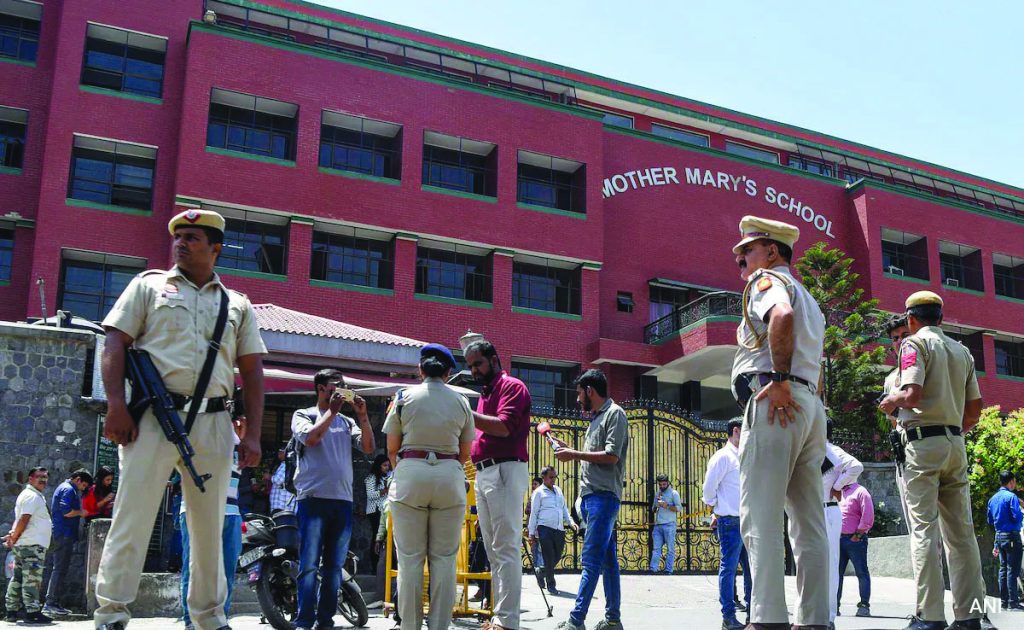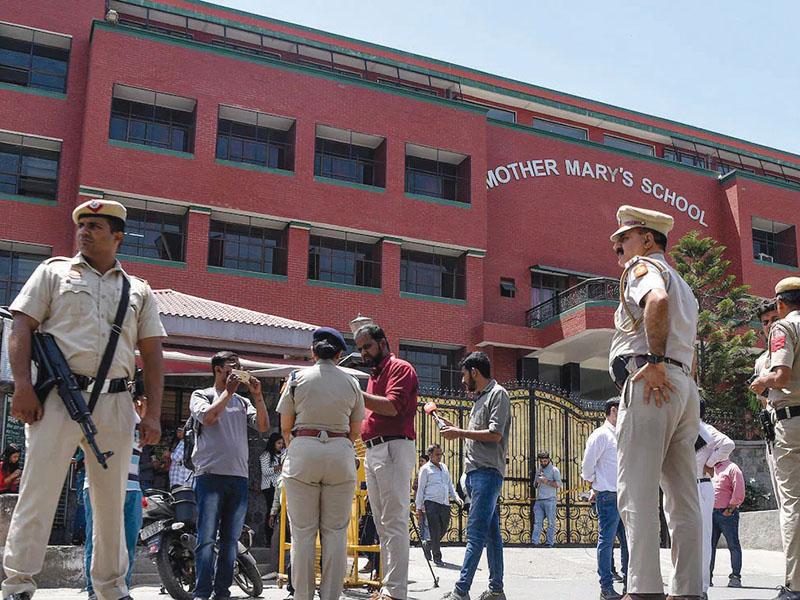No products in the cart.
Delhi: Bomb Hoax Menace
– Autar Nehru (Delhi)

Bomb squad inspection: forced holiday
A wave of hoax bomb-threat emails during the past three months has rattled schools in the Delhi-NCR (national capital region) reviving memories of the panic and disruption experienced last year.
In 2024, more than 300 schools received threatening bomb hoax emails in August-September which necessitated institutional closure for several hours — often a full day as official bomb disposal squads were called in to search buildings and grounds as fire brigade and police personnel stood by.
Investigations by Delhi Police’s cyber units indicate that most perpetrators use VPNs, proxy servers, Tor networks, and foreign-hosted email services, making it difficult even for trained cyber security personnel to trace them.
Closure of schools in India is a special problem because unlike in the US and China where schools are shut down for ‘other holidays’ (apart from summer, winter and autumn) for 10-15 days, in India they are closed for 15-22 days because of the country’s multi-religious and ethnic composition. And although the Union education ministry and department of education of the Delhi state government mandate 220 school days per year, the national average is 180-190 days, other holidays included. Yet if school closures because of rain, floods, public disorder, poor air quality are added, the national average is estimated at 170-175 days.
Not entirely coincidentally as the Annual Status of Education Report (ASER) of the Pratham Education Foundation routinely highlights learning outcomes in India’s rural primary schools in particular, are abysmal. In rural India where school shutdowns are decreed at the drop of a turban, over 50 percent of class VII children can’t read class III texts in any language or solve simple math sums. Therefore the last thing that schools — urban or rural — need is forced closure because of faux bomb threats.
Recurring hoax threats to schools also come at a time when the education sector is being subjected to a wave of cyberattacks. A September report from Check Point Research (CPR), a leading cyber intelligence software provider, reveals that education and research organisations in India faced an average of 8,487 cyberattacks per week over the past six months — almost twice the global average.
Responding to this menace the Delhi government issued a Standard Operating Procedure (SOP) last year outlining preventive and response measures for schools, including mock drills, CCTV monitoring, evacuation plans, and periodic safety audits. Moreover the Delhi Police’s Cyber Prevention, Awareness & Detection (CyPAD) unit has been conducting drills and forensic investigations as part of its ongoing campaign to improve preparedness.
Despite these efforts, there is growing unease among school communities about the profile of perpetrators. Police say most bomb hoax warnings are sent by students themselves, often as pranks or attempts to delay exams. “It’s disturbing that children are using such grave and illegal means for mischief on a scale that is becoming a epidemic,” says a teacher. The psychological toll has also been heavy.
Srinivasan Sriram, Principal of The Mann School, Delhi, and a National Awardee for ICT Innovation in Education, says this issue is serious and needs attention. He suggests it must be tackled with determination. “There must be deterrence — strict punishment and financial liability for perpetrators. Parents of those involved should bear the costs of public resources wasted, of school days lost, evacuations and bomb squad operations. The law has to be strict and rigorously applied,” says Sriram.
Faux bomb threats, a rising tide of cyberattacks and data breaches underline a stark reality: cybersecurity is no longer an optional subject in education. All children need to learn about school networks, protecting ICT communication systems and about cybercrimes, law and security.















Add comment